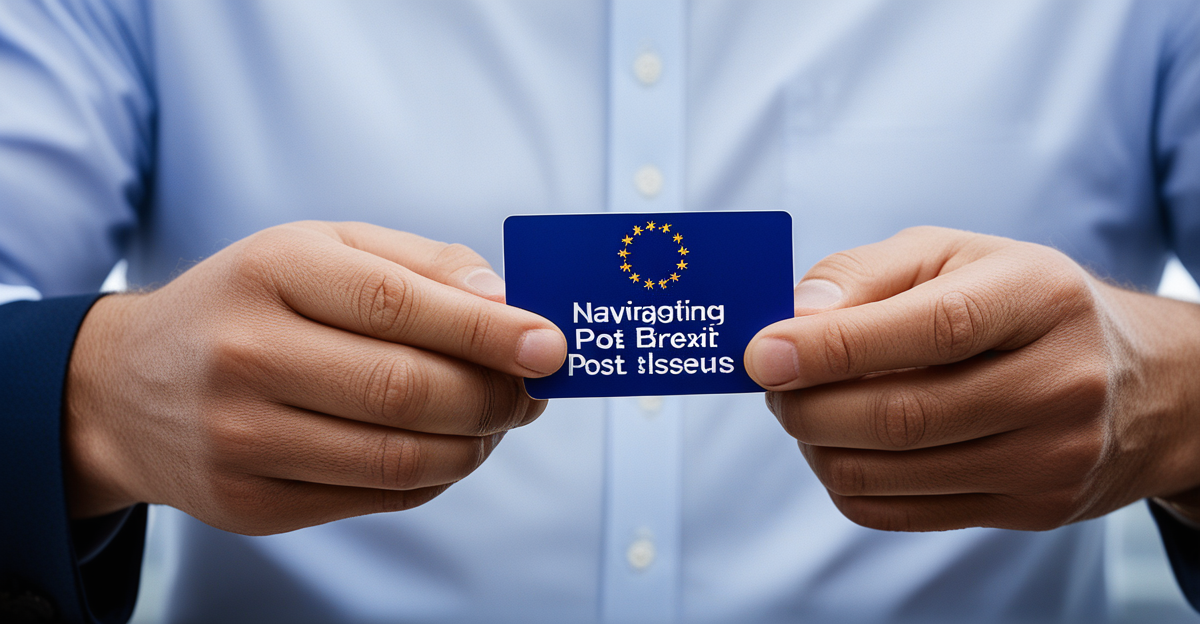Key Post-Brexit Trade Challenges Impacting UK Businesses
The landscape of UK trade has shifted significantly due to post-Brexit trade challenges. One critical issue is the increased complexity of customs changes. UK businesses now face additional customs procedures and paperwork when trading with the EU, a process that was previously smooth under single-market rules. This has led to longer clearance times and higher administrative costs.
Moreover, UK-EU trade barriers have introduced new tariffs and regulatory burdens that affect cost structures. Industries relying on just-in-time supply chains experience disruptions due to delays at borders, impacting cash flow and production schedules. These challenges force businesses to reassess their pricing and operational strategies to maintain competitiveness.
Additional reading : How can UK businesses leverage digital transformation to boost growth?
Supply chains have also suffered due to logistical delays post-Brexit. The UK’s departure has caused disruptions in established shipping routes and introduced uncertainty around regulatory alignment. For example, perishable goods require swift customs clearance, but additional inspections can cause spoilage and losses.
Thus, navigating these post-Brexit trade challenges demands that businesses understand the evolving landscape and adapt quickly. Awareness of UK-EU trade barriers and effective management of customs changes are paramount to sustaining cross-border trade efficiency.
In the same genre : How Can Small UK Businesses Navigate the Challenges Post-Brexit?
Strategic Supply Chain Adaptations for Resilience
Adapting supply chains is essential for supply chain resilience post-Brexit. Businesses increasingly pursue sourcing diversification to reduce dependence on a single market or supplier. By exploring alternative sources outside the EU, companies mitigate risks linked to post-Brexit trade challenges and UK-EU trade barriers that cause delays and added costs. This shift improves flexibility and responsiveness.
Investing in technology to enhance logistics transparency is another critical strategy. Advanced tracking systems and real-time data analytics allow firms to monitor shipments closely and react promptly to disruptions caused by customs changes or border checks. These technologies streamline operations and reduce unexpected delays.
Establishing inventory buffers also strengthens resilience. By holding additional stock, businesses create a safeguard against supply chain interruptions stemming from new tariffs or paperwork. Coupled with robust risk management protocols, companies are better prepared to navigate regulatory complexities and logistical hurdles, ensuring continuity despite post-Brexit trade challenges.
Overall, these strategic supply chain adaptations—diversification, technology adoption, and inventory management—enable UK businesses to manage UK-EU trade barriers effectively and sustain smoother trade operations under evolving customs requirements.
Key Post-Brexit Trade Challenges Impacting UK Businesses
The primary post-Brexit trade challenges revolve around the increased complexity of customs changes affecting UK-EU exchanges. Businesses must now navigate extensive customs procedures requiring detailed paperwork, which did not exist pre-Brexit. This additional bureaucracy leads to longer clearance times, creating delays that disrupt production timelines and inventory turnover.
UK-EU trade barriers have also introduced new tariffs and regulatory complications, raising operational costs and squeezing profit margins. Industries relying heavily on just-in-time delivery models face amplified risks due to these tariffs and border inspections. For instance, manufacturing sectors experience delays in component supply, causing assembly line slowdowns.
Logistical setbacks are another critical factor. Increased border checks mean disruption of established routes, adding uncertainty and expense to routine shipping operations. Perishable goods are particularly vulnerable because customs delays risk spoilage, negatively impacting business revenues and consumer trust.
Ultimately, these post-Brexit trade challenges demand that UK businesses proactively adjust to the evolving customs landscape. Understanding the full implications of customs changes and UK-EU trade barriers is essential to mitigate risks and maintain competitiveness in cross-border trade.
Key Post-Brexit Trade Challenges Impacting UK Businesses
Post-Brexit trade challenges primarily stem from the increased complexity of customs changes. UK companies now face more exhaustive customs procedures and paperwork when trading with the EU. This administrative load means longer clearance times at borders and higher transaction costs, disrupting established supply chains. For example, additional customs documentation requirements delay shipments and increase the risk of fines if incorrectly completed.
In addition, UK-EU trade barriers have introduced new tariffs and regulatory burdens that alter cost structures. Businesses must navigate differing standards and compliance checks, compounding delays and expenses. This is particularly challenging for sectors relying on smooth, timely deliveries, such as manufacturing and fresh foods.
Logistical delays also persist as a critical issue post-Brexit. The extra customs inspections and border controls lead to disruptions in shipping and transport routes, aggravating supply chain inefficiencies. Companies experience uncertainty around timing and increased operational risks due to these ongoing frictions.
To address these post-Brexit trade challenges, understanding evolving customs changes and responding to UK-EU trade barriers with strategic adaptations is vital. Firms must prioritize compliance and cost management to sustain competitiveness amidst these complex trade dynamics.
Key Post-Brexit Trade Challenges Impacting UK Businesses
Post-Brexit trade challenges fundamentally arise from more intricate customs changes that demand extensive documentation when trading with the EU. This escalation in customs procedures intensifies administrative workload and extends clearance times, impacting timely delivery and inventory flow. Businesses must navigate evolving forms, declarations, and checks—each non-compliance risk heightens penalties and shipment delays.
New UK-EU trade barriers compound these difficulties by introducing tariffs and regulatory divergences. These burdens alter cost structures and demand compliance with differing standards, complicating supply planning. For example, products once exempt now face tariff liabilities, prompting companies to review pricing models or supply routes.
Disruption in supply chains is a direct consequence of these combined effects. Customs changes and trade barriers interrupt seamless movements, causing logistical delays and route uncertainties. Industries reliant on rapid or just-in-time delivery find themselves particularly vulnerable, as delays cause operational knock-on effects.
To sum up, understanding the layered impacts of customs changes, tariffs, and regulatory obstacles is essential. UK businesses confronting these post-Brexit trade challenges must refine processes and enhance adaptability to mitigate the influence of heightened bureaucracy, new costs, and supply chain interruptions.
Key Post-Brexit Trade Challenges Impacting UK Businesses
Post-Brexit trade challenges largely arise from intensified customs changes that complicate trade between the UK and EU. Businesses now face increased customs procedures and detailed paperwork. This includes submitting comprehensive declarations and ensuring accuracy to avoid penalties. The result is prolonged clearance times that delay shipments and disrupt supply chains.
Another significant hurdle involves newly implemented UK-EU trade barriers. Tariffs and divergent regulatory requirements increase operational costs. Companies must comply with various standards, certifications, and inspections now absent in pre-Brexit trading conditions. This heightens complexity, forcing firms to adjust pricing strategies and supply plans.
Supply chains have also been severely disrupted. Border delays and customs inspections cause logistical setbacks, especially for sectors dependent on swift delivery, such as manufacturing and perishables. These interruptions affect inventory turnover and production schedules, increasing risk exposure.
Understanding and navigating these post-Brexit trade challenges demands comprehensive compliance with evolving customs changes and strategic responses to UK-EU trade barriers. Firms that manage these intricacies effectively can mitigate delays and cost impacts, preserving competitiveness amid a more fragmented trade landscape.

